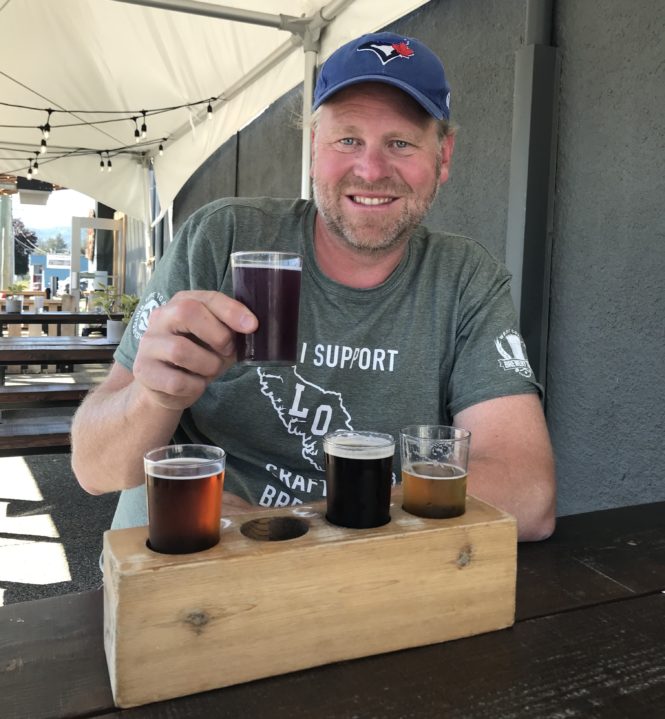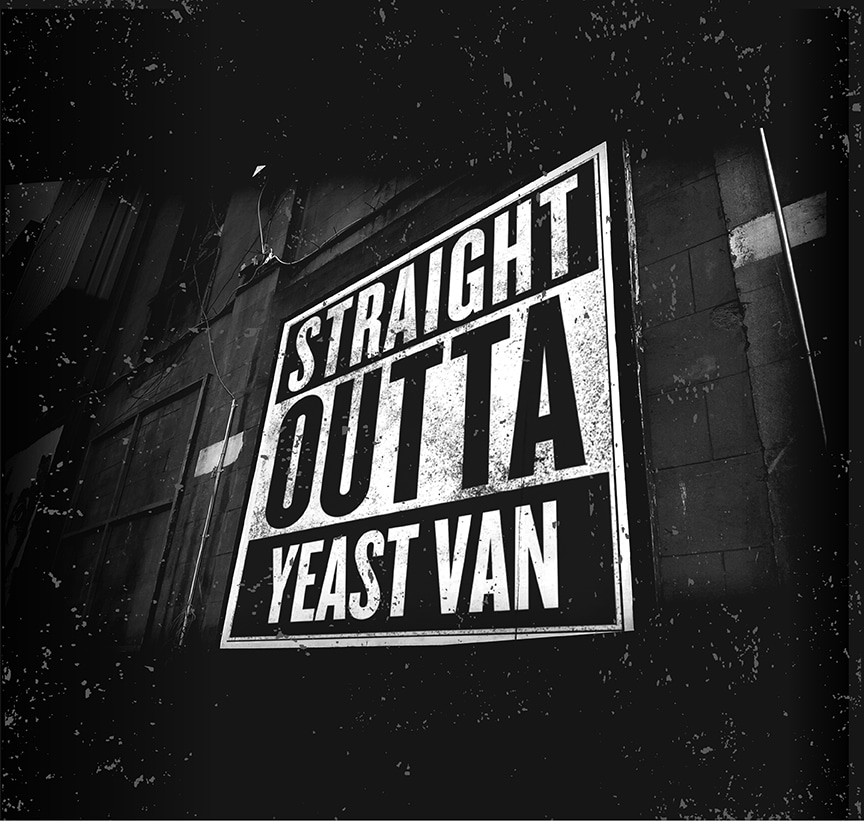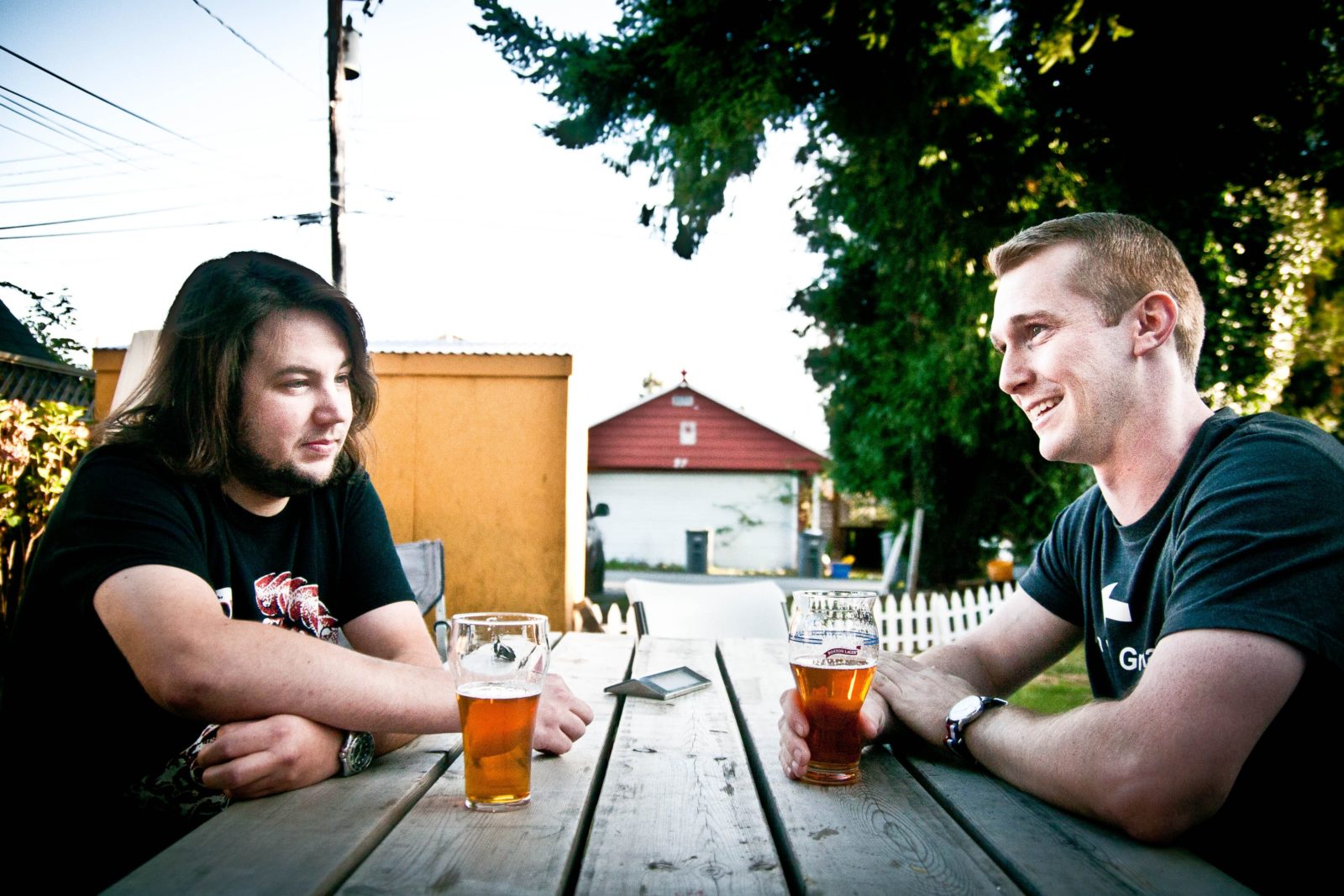
Contract brewing is part of the beer business that most people know little about. The idea is simple: rather than build your own brewing facility, you pay an existing brewery that has excess capacity to brew your beer for you. It is legal, and the product is generally still considered to be craft beer if it isn’t a so-called “shadow brand” created just to make lots of money. Some of the world’s most highly regarded breweries, such as Mikeller and Evil Twin, operate without brewing facilities of their own.
According to the “Ontario Brewer’s Directory” (MomAndHops.ca) there are 65 contract breweries to go along with more than 200 brick-and-mortar breweries in that province. Here in B.C., however, there have been only a few examples in recent years. Probably the best known is Fuggles & Warlock Craftworks, which started off as a contract brewery paying Dead Frog Brewery to produce its beers before it opened its own facility in Richmond in 2015. Dead Frog also helped Steamworks while it was building its Burnaby facility.
Contract brewing seems to be on the rise here in B.C. as part of the huge boom in new breweries (more than 50 have opened in BC since 2015). It makes sense – after all, a brewery generally costs upwards of $1 million or more to build, so why not start without an actual facility and build up your brand and capital until you can afford to build your own place?
In Vancouver, there are two unique companies that are designed to help contract breweries: Callister Brewing, which opened in 2015 and operates an incubator space for new breweries; and Factory Brewing, a brand new facility with a business model entirely devoted to contract brewing.
Callister is a small-scale operation located just off Clark Drive with a tasting room that serves its own beer along with three other resident breweries that sign up for one-year terms. Arguably, Callister is more of a co-op than a true contract brewery. In its first year, the resident breweries were Real Cask, Superflux (originally Machine Ales) and Brewery Creek. Real Cask stayed on for Year Two, while the other slots were filled by Boombox Brewing and Lightheart Brewing.
For Adam Henderson and Matt Kohlen, co-founders of Superflux, Callister was the perfect opportunity to explore the idea of starting a brewery.
“We began without too much in terms of plans,” Henderson admits, adding that he is quite busy with his other business, Copper & Theory, a craft beer distribution company.
“Nobody else there was really making IPAs,” he says. “I don’t know if you’ve heard, but they’re very popular. Half of the time people would say ‘What’s your IPA?’ so we got some notoriety and we learned how to dry hop pretty well, I think.”
After their year at Callister, however, they realized they needed to brew bigger batches of beer to continue to grow their business and meet demand. Superflux next worked with Dogwood Brewing for about five months, and now is beginning to work with Strathcona Brewing.
“We are not just making a brand to sell,” Henderson insists. “We’re putting our knowledge of how beer is made, our love of what we want to see be made – we’re putting that into it. Where your beer is made is important to a degree. Ultimately, what’s important is how it’s made and if a drinker likes it. It shouldn’t matter to the drinker. We’re doing our job if it doesn’t.”
Henderson and Kohlen intend to open their own brewery, hopefully within the next couple of years. Meanwhile, Boombox seems to have picked up the IPA gauntlet at Callister. At the B.C. Beer Awards last October, it won third place out of 58 entries in the competitive North American IPA category for its Ultra Deluxe IPA, and also took home the CBC People’s Choice Award for its Pablo Esco Gnar IPA, a Northeast IPA that was brewed in collaboration with Superflux.
Factory Brewing’s business model is all about making beer for other breweries. Located near Strange Fellows Brewing in East Vancouver, it will be working with several local companies, including Doan’s Craft Brewing Co., which opened in 2015 in what was Powell Street Craft Brewery’s original location. That building’s footprint only allowed for a very small brewhouse, which has been challenging.
“We wanted to get into this industry more than anything, and this was the perfect scenario to get our foot in the door,” Evan Doan says, but acknowledges that “the past year has been a huge struggle to make enough money to continue growing here. So Factory is a dream come true for us.”
Factory will brew and package Doan’s core brands – Rye IPA, Rye Stout and Kolsch – while Doan’s will brew beer for two new series at their own facility: the 1830 Series, which will include “the beers we’ve always wanted to brew but never have been able to;” and the Fun Time series, which will feature collaborations with other breweries.
Expect to see several other smaller breweries from B.C. making using of Factory’s services in the very near future.




